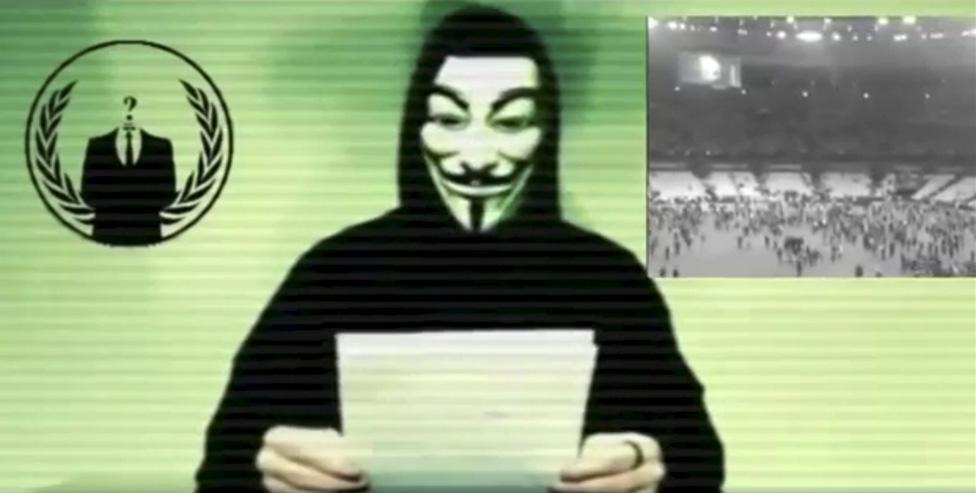Anonymous takes on IS
- Published

They are a loose collective of hackers who once appeared to have no greater purpose than having some mischievous anarchic fun.
But in recent times Anonymous has got serious. Earlier this month the collective targeted the Ku Klux Klan, publishing online a list of alleged sympathisers of the white supremacist group.
Now they are pursuit of a much bigger prey, so-called Islamic State (IS). In the wake of the Paris attacks, Anonymous launched what it called Operation Paris, with the aim of tracking down members of the terrorist group. Earlier today the operation's Twitter account @opparisofficial trumpeted their first success, proclaiming that more than 5,500 IS Twitter accounts had been taken down.
But what are the aims of this campaign, and is it likely to have any impact at all on its target? Security experts are somewhat sceptical, pointing out that the intelligence agencies monitoring IS might prefer to see its operatives remain active on social media where they can be seen, rather than have them disappear into the dark web.
I asked the person behind the Operation Paris account for a phone interview. I was told that was impossible - but he (he appears to be an Italian man) agreed to provide written answers to my questions. Bear in mind that it is impossible to know just who is behind the Twitter account and whether they really command a huge army of hackers - but here is how the conversation went:
What are the aims of your operation?
Our main goal in this operation is to identify the perpetrators of the Paris terror attacks and all terrorist organisations linked to them, acquire intel to dig deep into the roots of their manpower, disable their propaganda and stop their reach on social media, release their information to the public, and flag down any threat to mankind.
How will you measure its success?
With #OpParis as a large scale op, we make use of our morale, experience, and our efficiency in effectively finishing off ISIS, not just in the Internet, but ISIS itself. We will not settle down by just simply putting ISIS off the internet grid.
Are you confident about the accuracy of your claims about IS members?
We run effective verification of intel, and make sure that our leads are legitimate before we attack them. In some cases, they could be sympathisers or followers that republish horrifying display. We guarantee that we are not making false accusations to those who aren't actually involved.
What happens if you post the name of someone who turns out not to be involved?
It is difficult that we make a visible profile without having the absolute certainty, we do not share information as soon we have them in hand and we spend countless hours to investigate and verify it.
Isn't it better for the fight against IS if its members talk openly on Twitter where the security services can see them, rather than being driven underground?
The propaganda of ISIS is based on advertising their actions. They want to strike terror with their name, with bloody images, with violent videos. We can not fight them with guns and rifles, stopping their propaganda is an effective way to weaken their manpower and their presence in the Internet. Disrupting their communications makes it difficult to organise their attacks in a fluid manner.